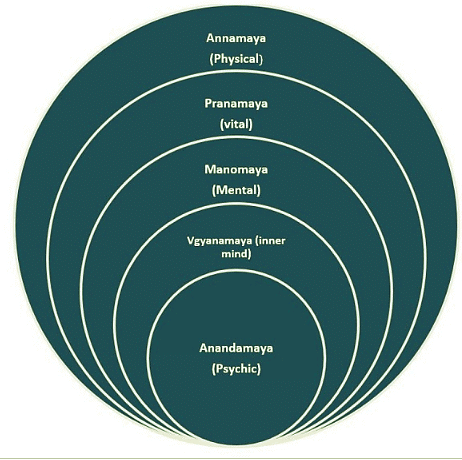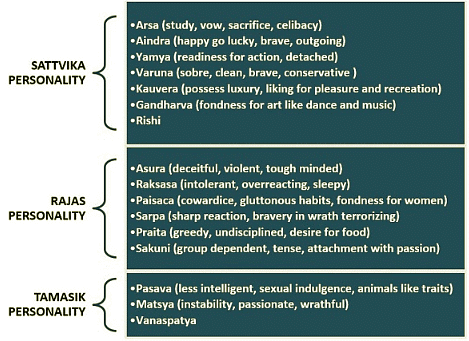The Indian Approach to Personality | Psychology for UPSC Optional (Notes) PDF Download
Introduction
The quest to understand the intricate nature of personality and the human mind has captivated humanity since time immemorial. Despite the long-standing interest, these subjects remain enigmatic and unexplored realms for many seekers. While various theories have been proposed throughout history, only a few have stood the test of time. Surprisingly, the Indian perspective on personality has not only endured for over two thousand years but also continues to attract the attention, scrutiny, and commendation of scholars. Delving into the depths of this ancient wisdom, we unravel the concept of "Swabhava" and explore the fundamental principles that underpin the Indian approach to personality.
Concept of Swabhava: Decoding the Essence
The term "Swabhava," translated from Sanskrit, closely aligns with the concept of personality, albeit with a deeper connotation. Unraveling the Indian approach to personality necessitates an exploration of fundamental concepts that shed light on its various dimensions. These concepts include Prakriti, Tridosha, Triguna, and the levels of consciousness, known as sheaths of mind. These facets provide physiological, hereditary, and psychological explanations for different aspects of personality, offering a holistic framework.
Prakriti: The Fundamental Nature
Prakriti encompasses the basic characteristics of spirit and nature, playing a pivotal role in shaping an individual's unique way of behaving. Comprised of three components, Prakriti encompasses:
- Purushottama: The supreme truth that establishes the limits and potential for development, providing a foundation for other elements to flourish.
- Self: The awareness and sense of "I"ness that individuals develop throughout their lives.
- Jiva: The immortal spirit dwelling within the body, embodying the memories of past and future lives and evolutionary experiences.
Levels of Mind: Unraveling Complexity
According to the yogic tradition, the mind's cognition, known as "pragna," encompasses 16 dimensions classified into four categories:
- Buddhi: The logical dimension of thought associated with intellect, wisdom, analysis, discrimination, and decision-making.
- Ahankara: The sense of identity and self-concept that contextualizes the functioning of intellect.
- Manas: The sensory or processing mind present in every cell of the body, encompassing intelligence (distinct from intellect) and past memories.
- Chitta: The pure cosmic intelligence that serves as a bridge between the conscious and unconscious, as well as the superconscious realms.

These categories intricately interact to form a complex mind, shaping an individual's thoughts, emotions, and behavior. The Upanishads further elucidate the five levels or sheaths of mind, known as panchkoshas, which constitute the foundation of one's personality:
- Annamaya Kosh: The outermost layer representing the physical body, grounded in the sustenance derived from food.
- Pranamaya Kosh: The life or prana component, encompassing the functions of breathing and metabolic processes.
- Manomaya Kosh: The realm of the five sense modalities and the seat of the ego, driven by personal involvement, desires, and activities.
- Vigyanmaya Kosh: The level of interaction between the senses and intellect, governing worldly life and fostering a sense of self.
- Anandmaya Kosh: The highest level, epitomizing profound self-awareness and spiritual bliss derived from non-worldly pursuits.
Triguna: The Spectrum of Attributes
Guna refers to the fundamental attributes that shape human personality, giving rise to various temperaments. These attributes are both inherent and cultivated by individuals within their respective environments, influenced by society, diet, experiences, and thought patterns. The three primary Gunas are:
- Sattva Guna: The spiritual quality characterized by stability, goodness, wisdom, dutifulness, calmness, spirituality, self-control, respect, and kindness.
- Rajas Guna: The active quality characterized by passion, desire, restlessness, attachment, enthusiasm, longing for results, and self-interest.
- Tamas Guna: The material quality characterized by ambiguity, idleness, revengefulness, fantasy, apprehensiveness, laziness, persistence, and cynicism.

These Gunas interact and combine to form numerous other variations. Indian texts classify seven types of sattvic Gunas, six types of rajasic Gunas, and three types of tamasic Gunas, culminating in a total of 16 personality types.
Tridosha: Balancing Biological Elements
The ayurvedic concept of tridosha, rooted in the Mahabharata, combines the five elements of air, fire, water, earth, and sky/ether. These elements intertwine to form three doshas:
- Vata: Composed of sky and air, governing bodily movements, including breath and circulation.
- Pitta: Arising from fire and water, responsible for metabolic processes, digestion, and transformation.
- Kapha: Formed by water and earth, influencing physical structure, stability, and growth.
These tridoshas primarily impact an individual's physiological and psychological processes, further contributing to the formation of personality.
Conclusion
The Indian tradition holds tremendous potential to revolutionize our perception of the world, offering profound insights into the realm of personality. However, the scientific knowledge embedded in Indian texts remains largely beyond the scope of contemporary academic investigation. Perhaps a paradigm shift in research methodology applied to this field of study can yield significant outcomes. Encouragingly, a growing zeitgeist and a shift in paradigms are underway to accommodate this ancient science. Researchers have begun conducting relevant studies and acknowledging the relevance of the Indian perspective on personality, paving the way for a deeper understanding of human nature.
|
160 videos|215 docs
|
















